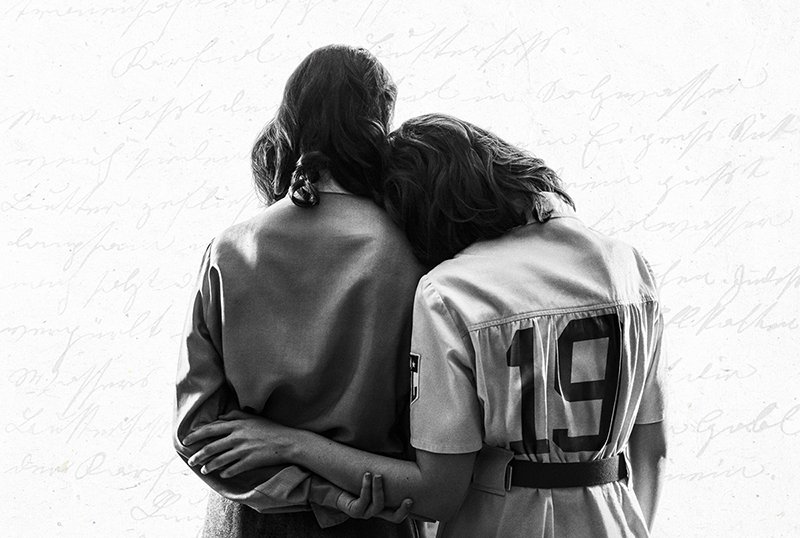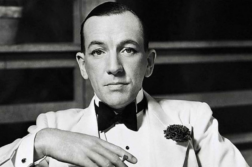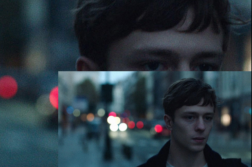
History is not kind to queer stories. How many times have there been letters left in the attic or basement, long-forgotten since their original senders have passed on – delicate spidery script written on fragile parchment, touching declarations of devotion and love despite a time when that love was — and still is— considered forbidden? Today we have existence of our queer ancestry preserved from the likes of literatures from queer icons such as Virginia Woolf and Emily Dickinson, but those are the exceptions. Oftentimes queer history has often been censored, ignored, or even straight-washed by the likes of straight historians, who look at narratives of two women so intimately wrapped in each other’s lives only to declare them “gal pals”.
Perhaps this, too, would have been the story of Terry Donahue and Pat Henschel, two women who met when such loves were still secret. Except it wasn’t. In Chris Bolan’s touching documentary A Secret Love we see his dedication to telling his great aunts’ love story, an epic romance that spanned over seven decades, told in undeniable and unapologetic detail.
The film begins with Terry and Pat discussing moving out of the home they’ve lived in together in St. Charles, Illinois. While Pat laments the idea of going to Edmonton, Canada, of not being pleased with the idea of being in the frozen north, Terry genially claims that she “don’t care where we go. As long as we’re together we’ll be happy.”
The film weaves back and forth between the past and the present, between memory and history. Through personal testimonies and in the letters they wrote to each other, we watch Terry and Pat trace their personal histories and the beginning of their relationship together. Both grew up in conservative households, later hiding the reality of their relationship to their biological families under the disguise of “friendship.” The two reflect on the reality of queer history as they’ve known it, the anti-queer hostility of the 40s and the Lavender Scare homophobia of the 50s and 60s. While discussing the frequent raids of the era that accompanied the gay bars (a symbolically significant site of queer alliance and community in extremely homophobic times), Terry and Pat discuss how they feared even going to going to those bars, fearful of losing their green cards.
The movie makes nods to other significant portions of the past, including early women’s professional baseball. While the famous 1992 sports film, A League of Their Own, hinted at the queer dynamics of this sport, A Secret Love takes an authentic look at the scene by reviewing Terry’s career as a professional baseball player with the Peoria Redwings. At one point in the film, she even proudly talks about how she keeps a couple of signed baseball cards at hand in her purse to give out to fans who are in awe of her career, a living reality of a cinematic wonder. While queer women in sports have often been erased or ignored by mainstream media— a hurtful testament to the way misogyny interacts with history— it’s lovely to see a quiet icon such as Terry acknowledged for the legacy she made in breaking gender barriers in athletics.
As the film rolls on, the challenges of this octogenarian queer couple are highlighted. Because of the AIDS pandemic and historical and emotional erasure of those considered deviants from society’s cisheteropatriarchal norms, many of our queer elders did not survive to old age. With Pat and Terry we are given a rare glimpse into what these elders could have have become, brave and resilient souls, despite the mirrored reflection of their wrinkles and struggles.
In a beautifully heartbreaking moment, we see the two wed under a blue and white balloon arch, surrounded by their loved ones promising to love and honor each other, a promise they’ve already kept their whole lives, but are wonderfully able to celebrate it out in the open, rings and all. In all the cinematic history of weddings, the words “Now you may kiss the bride” may have never been sweeter.
A Secret Love is sentimental in the most genuine sense of the word. Watching these two women pour over the contents of a life built together, reading their love poems in the house they shared, exchanging rings in front of supportive family and friends is a testament to the strength of queer veterans who have faced battles big and small so that many of us can live our lives out openly today. From their time in professional women’s baseball during World War Two to their eventual ceremony together— a feat achieved right before Terry’s passing—queer viewers are given an opportunity to see the span of a full queer love story come to bloom,
Like the Doris Day song the film’s title was derived from, many have had “a secret love / That lived within the heart of me / All too soon my secret love / Became impatient to be free.” Yet as Terry and Pat’s story show, that secret love is no secret anymore.
Michele Kirichanskaya is an intersectional feminist and multi-spectrum geek living in New York. In addition to reading, watching cartoons, and spending time with family, she also spends time trying to write for as any websites as possible, including Lambda Literary, GeeksOut!, ComicsVerse, BLENDtw, Mindfray, Bookstr, and more.






